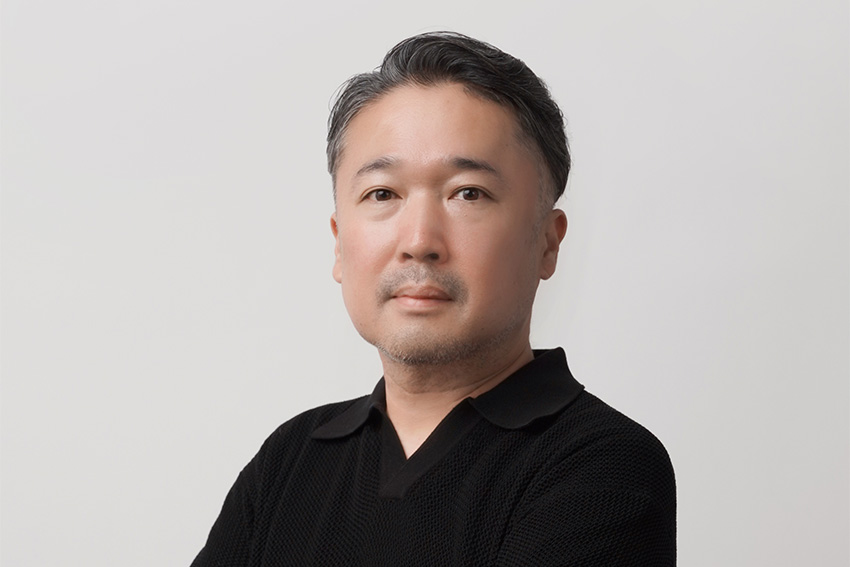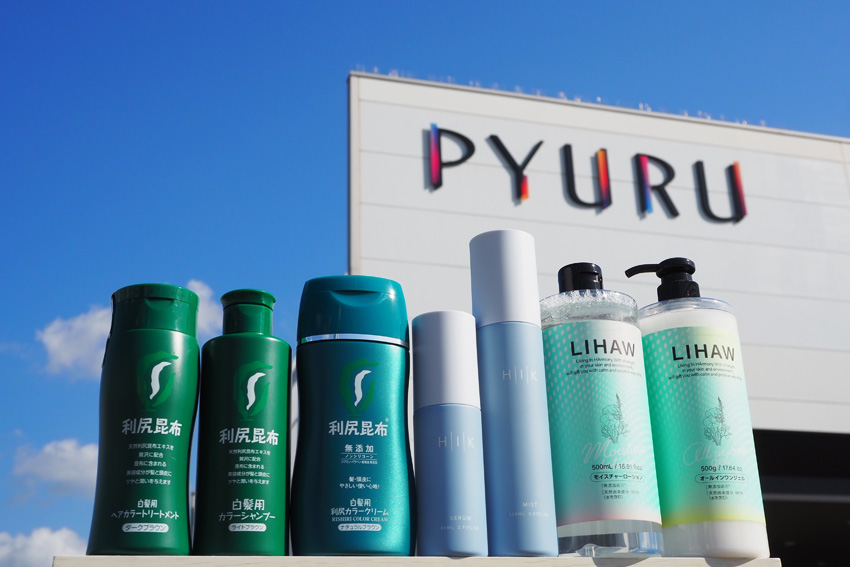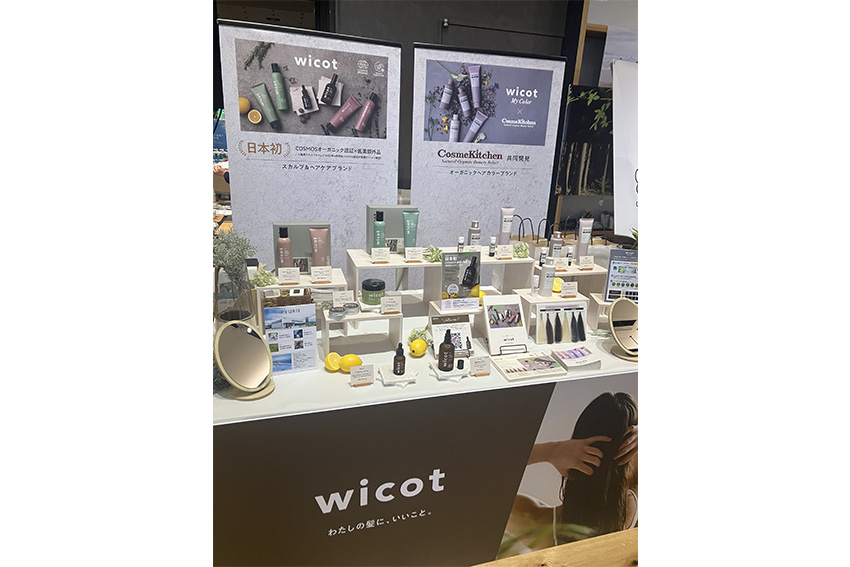Providing products that are not only kind to the body and the environment but are also genuinely effective.

The Asian beauty industry has seen a decade of South Korean dominance thanks to the widespread export of its culture through mediums such as K-pop and K-dramas and effective marketing. It is noteworthy, however, that several active ingredients found in K-Beauty products originate from Japan, from companies like Nihon Kolmar. Additionally, there is a shift in consumer preferences towards Japan’s “less is more” philosophy, which emphasizes high-value products with fewer, but more effective ingredients, and this has been gaining momentum. What factors have contributed to Japan’s ongoing success in the global beauty industry and to what extent has Japan’s influence in the beauty sector impacted global perceptions of beauty standards and practices?
Many aspects can be mentioned when talking about the excellence and ongoing success of Japan. First of all, we must mention quality and precision. I think these two points in particular bring us to the essence of manufacturing, something that Japan prides itself on and draws from cultural influence. Unfortunately, these days many might have differing opinions in regard to what made-in-Japan means, but we believe that this fundamental element is still ever-present and will be in the future. Another huge factor, especially when discussing our company, is that everything is done in-house. Our business has been based on OEM and continues to do so to this day. Alongside that however we do have our own commercialized products, and every time we introduce a new product to overseas markets we make sure to conduct due diligence and examine the market. Understanding what will and won’t be good for the customers is something we take very seriously, and this ethos allows us to go to some areas that other companies might not. We actually have very good correspondence with Korean OEM and ODM companies, and without talking too much about it, I think it is clear that both countries have their own pluses and minuses. To bring it back to your question, I think Japan has always been focused on attention to detail, quality, and precision, particularly when it comes to ingredients used in cosmetic products.
I think an element of the made-in-Japan ethos really is to go beyond the normal, basically creating something over-specification. Compliance with domestic standards inevitably leads to compliance with overseas markets since the domestic market standards are so high. Quality control, safety, and precision are some keywords that companies like ourselves pay special attention to. It is a long path obviously, because it takes a lot of time and devotion. Korea may be a step ahead since entertainment-wise, right now they are the top with the movies and K-pop music they are exporting. This all drives the marketing and is a good approach they are taking. I think there are many lessons Japan can learn from the marketing of Korea. Again there really are pluses and minuses in each country.
We’ve had recent good experiences with Thailand and Vietnam, with individuals enjoying our products, especially Japan-original skin care lotions, creams, and health-related products. We live in a fast-paced world, and stress or tiredness are realities many of us face. It is very important to have good, reliable, and quality products that can make life a little more comfortable. Japanese companies are providing these products.

Japan is the oldest society in the world and its population is expected to dip below 100 million by the year 2050, which presents dilemmas as well as opportunities. Japan’s anti-aging cosmetic industry has begun to thrive, boasting annual revenues surpassing USD 10 billion by capitalizing on consumer desires for youthful skin. What strategies have Japanese companies like yours employed to cater to the desires of consumers for youthful-looking skin? What potential challenges might Japan’s anti-aging cosmetic sector face in the coming years?
Firstly, you are correct that the number of senior citizens in Japan is on the rise, and we are seeing an increasing number over the age of 60. We see this as somewhat of a business opportunity for our company to introduce products that cater to this segment. It isn’t all sunshine and rainbows, however, and those over 60 are people who have accumulated wealth over the many years of their lifetime. The downside comes with brand attachment, and since they have lived longer, they have had many more years to develop personal preferences towards certain brands. This tends to pretty much be exclusively big company brands, particularly brands that were introduced to their senior citizens when they were younger. It is very hard to break these habits and change peoples’ minds, although we are trying our best to do so.
In regards to our company approach, I think it has to revolve around personalized skincare solutions. A good example might be our Rishiri Hair Color Series, a hair color series that is segmented to only about 10% of people who face issues going to a hair salons for hair coloring because of conditions such as diamine allergies. You might be wondering why an esthetician might recommend our product, and I think it's because of the ingredients used in the Rishiri Hair Color Series. People can enjoy having their hair dyed without having to worry about their allergies since the product has been tested for allergies without any issues. Essentially we are looking to target very specific, niche applications.
Pyuru’s core business is OEM and ODM, but we know that you’ve also developed your own brands such as the Rishiri Hair Color Series you mentioned just now. What motivated you to start your various brands and is there a particular brand you are looking to focus on in overseas markets?
There are many reasons that come to mind, and each product or brand has its own story behind it. It might be easier if I combine each of those and answer your question in a more general way.
Overall, I think the core element is brand identity, creating products that act as a symbol to let people know more about our company. These brands operate as evidence that creates a good vibe among customers and we have received good feedback as a result. From this feedback we have often thought about what else we can offer, creating a snowball effect in terms of momentum. All of these brands are more or less related to effective clean beauty, which is our R&D philosophy. This concept is important to mention since it is clear among all of our products. The idea is to decrease the burden on the environment while providing customers with effective cosmetics and supplements. Company wide we look to utilize natural ingredients and non-harmful substances, promoting healthy lifestyles for the customers. This was the founding principle of the company and nothing has changed.
All of our products are certified in Japan as safe for use, and customers appreciate our reliability.
One other sector you’ve recently ventured into is functional food, but many of these are not known for tasting good. Often they have concentrated amounts of nutrients and specific ingredients for health purposes, which may or may not always be pleasant to people’s palates. Furthermore, these products also need to achieve the right balance of nutrients to meet dietary needs or health goals without having to intake an excessive amount. As a firm entering the health food sector, how are you achieving the right balance between intake and flavor in your products?
Again there are different approaches to achieve the right balance between intake and flavor. Our brand is called Locomot, and we spent a lot of time thinking about what could be the best solution. Of course, formulation expertise gave us one direction to go, and a balanced nutrition profile is very important, basically meaning that we can’t go beyond particular ingredients that have to be embedded in the product. You have to remember that regulations in Japan are very strict, so utilizing natural flavor enhancers is something that creates good synergy. All of these then go through customer testing at the initial stages in order to make sure things taste good.
When creating supplements, the first port of call is always the end user. If that user is elderly, obviously requiring the intake of 50 tablets a day is unreasonable. I might be exaggerating, but the point is that we have to tailor the solution to the intended end user and build around that. Who and how they are eating the supplements is core to the development of the supplements. In addition, smart ingredient selection plays off this point too.
E-commerce (EC) is key to our sales strategy. In that sense, we can also gather a lot of feedback from customers, which is very important to our company. Customer feedback is crucial to further development, no matter what the product is. The pride we feel reading or hearing positive feedback drives us and motivates us to do our best, pushing us to create even better products in the future.
From July to December 2023 Pyuru in collaboration with Kyushu University conducted research on the functionality of fragrances, where it was found that certain fragrances protect the body from external stress such as psychological stress, ultraviolet rays, fear, and anxiety. Could you tell us more about some of the results of this project? What applications and products can these results lead to?
Aromatherapy is obviously not new, and since we are no strangers to this practice, we approached Kyushu University to establish scientific proof that fragrances can actually be helpful in relieving some of these strong external stresses, and reducing fear and anxiety.Also we have worked together to prove that a specific scent can contribute to their growth.
We already have our Wicot Scalp Serum, which uses fragrances as an ingredient. These fragrances help bring out the best features of this scalp treatment. The research allowed us to go beyond this, and since we are an OEM company, the idea is to introduce this concept to the products we offer other companies.
Is this for men or women, or is it unisex?
This is unisex. The lineup features serum to help the scalp grow more hair. For many, losing hair causes a lot of stress. The fragrance has the power to lessen the stress associated with hair loss.
This clearly demonstrates your firm's willingness to collaborate with others. Many firms around Japan like to collaborate in order to develop new products as well as unlock overseas markets. Are you currently looking for any new partnerships or collaboration opportunities overseas?
We have achieved results from cooperation. One example is in Itoshima, where poultry farmers provide the shell membrane from chicken eggs, which is then utilized in our serum. This membrane is proven to help promote healthy skin and is included in our HIK series of products.
These days I find myself thinking about food technology a lot. There are a lot of patent-based activities going on in the sector, particularly in regard to the benefits of food for the human race. Unfortunately, a lot of that has resulted in research with no product-out, and while Japanese companies have excelled at the research stage, they have struggled to produce a product as a final stage. My idea is to take some of this research and step away from the food sector itself. A lot of these ingredients may well be very helpful to people as cosmetics rather than consumable food.
Have you found anything interesting so far?
I have but it's a secret for the time being until we can develop the product to match the discovery.
You will be at the Sustainable Beauty Exhibition Lacalp in June 2024. What are you planning on showcasing at this event, and do you have any expectations for what you can gain from your attendance?
We are looking to showcase our Wicot Scalp series, particularly in terms of demonstrating hair growth. It is weird to imagine, but the perception of women towards organic cosmetic hair treatment still isn’t at a level of 100% understanding, and women still don’t realize that these organic compounds work in a good way as a conventional hair treatment. We have to break the mold and help people understand the benefits that can come from natural ingredients. Communication is the key tool in developing that understanding, and it is the reason companies like ourselves attend exhibitions. We are the only company in Japan with Cosmos certification for our scalp and hair growth treatments. This means we are a one-of-a-kind, and this should be the base of our marketing activities. We need to properly translate and convey the message of Pyuru so that potential customers can better understand what we can offer.
Most Japanese people believe that organic is good, but they feel that usability is sacrificed. We, as makers, have to try to enable the usability of organic products while enhancing their functions. Essentially, we combine the best of both worlds, which, of course, takes time.

Pictures from the 2023 Sustainable Beauty Exhibition Lacalp
In 2021, Pyuru released a store on Chinese TikTok, and we also saw that you have an office in Shanghai. Moving forward, what other countries or regions have you identified for further expansion, and what strategies will you employ to achieve that expansion?
The story with China is always a complex one, especially when you talk about regulations and certification, things that are required by law to sell products safely. This is particularly true regarding products that are directly applied to your skin. It is very important to have National Medical Products Administration (NMPA) certification, something we have obtained for some of our products but not all, and obviously we are aiming to have our entire lineup obtain this NMPA certification. This will enable us to further pursue EC sales in China.
Beyond China, there are locations such as Singapore, Thailand, Vietnam, Hong Kong, and Taiwan where we are already selling our products through EC channels. Vietnam is a target not only for EC, but we are also trying to establish physical retail stores in that location.
We emphasize EC in particular because of customer data and feedback. When sales are conducted online, we have instant access to all sorts of customer data relating to preferences. This data allows us to further develop our brands and revise some aspects of our product lineups.
Imagine that we come back in four years and have this interview all over again. What goals or dreams do you hope to achieve by the time we come back for that new interview?
When I think about goals for the next four years, many things come to mind. We are a local company here in Kyushu, and I would promote Itoshima along with our products by selling more of our products out of Itoshima to areas such as Tokyo, Osaka, and Kyoto where more of the population of Japan live. I also think about brand identity, and we strive to be a brand that reflects Itoshima’s culture, traditions, and natural ingredients.
We are progressing to expand our business overseas, especially in the APAC regions and we are eager to boost our business in the region. At the same time, we need to consider our options every step of the way. We also need to remember that although people outside of Japan appreciate Japanese products, they might have different habits and cultures, so we need to tailor products to the needs of a locality.
For more information, visit their website at: https://www.pyuru.co.jp/en/
0 COMMENTS